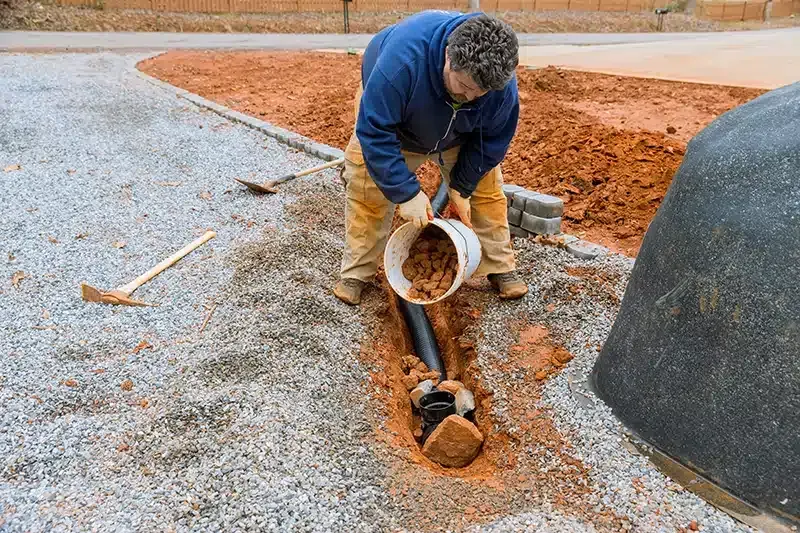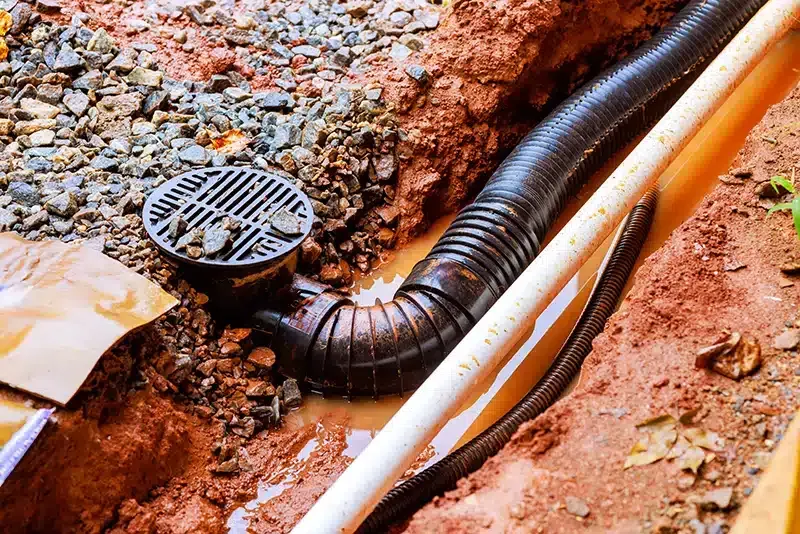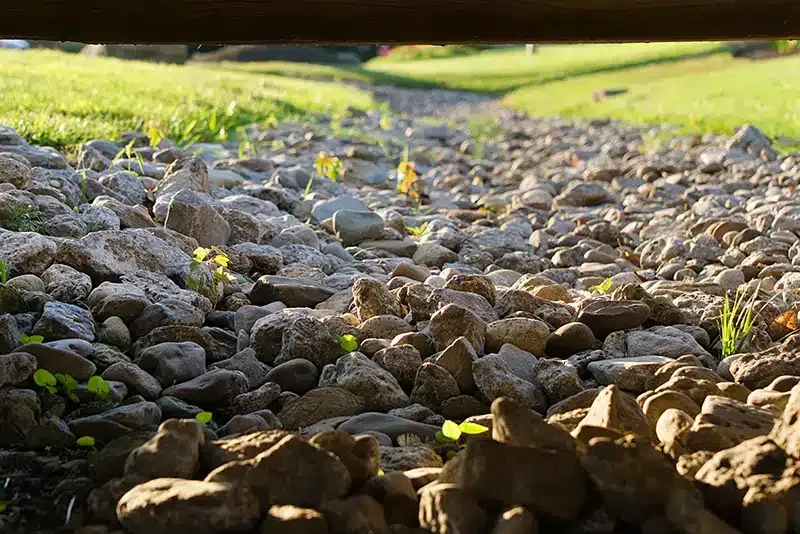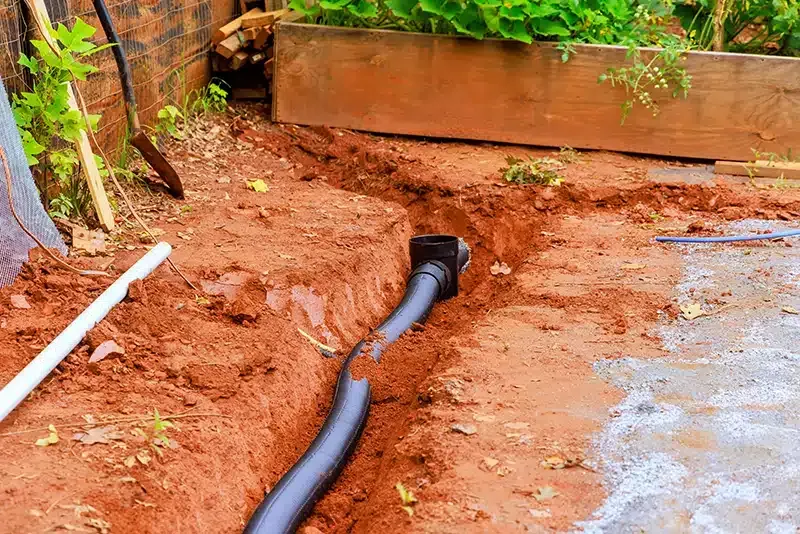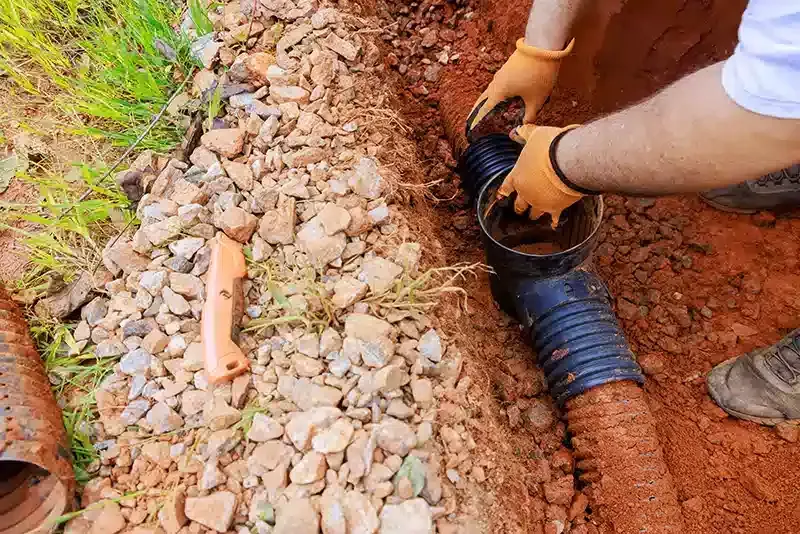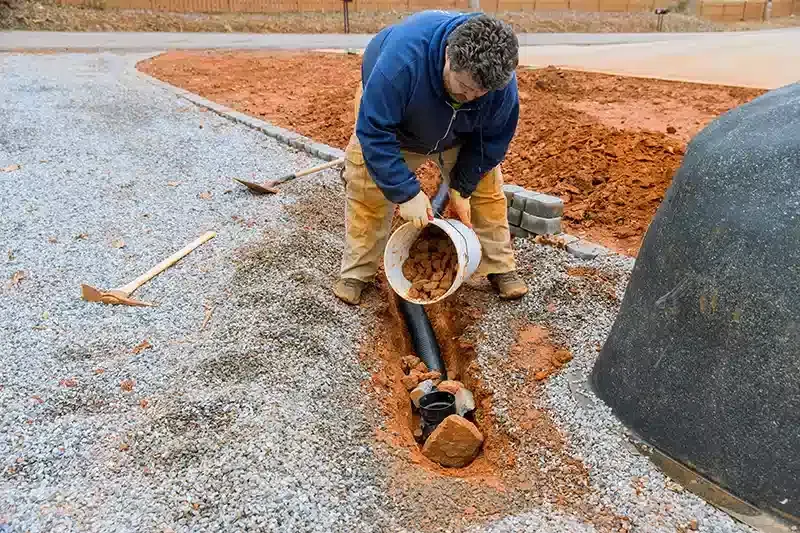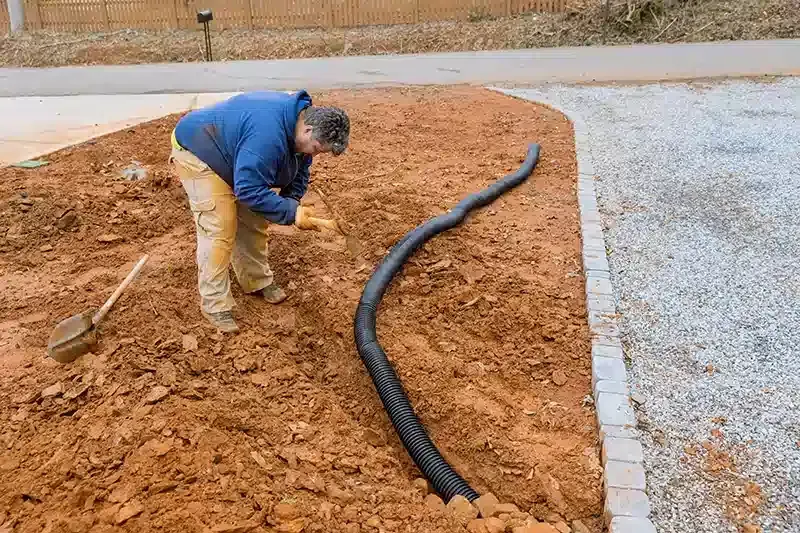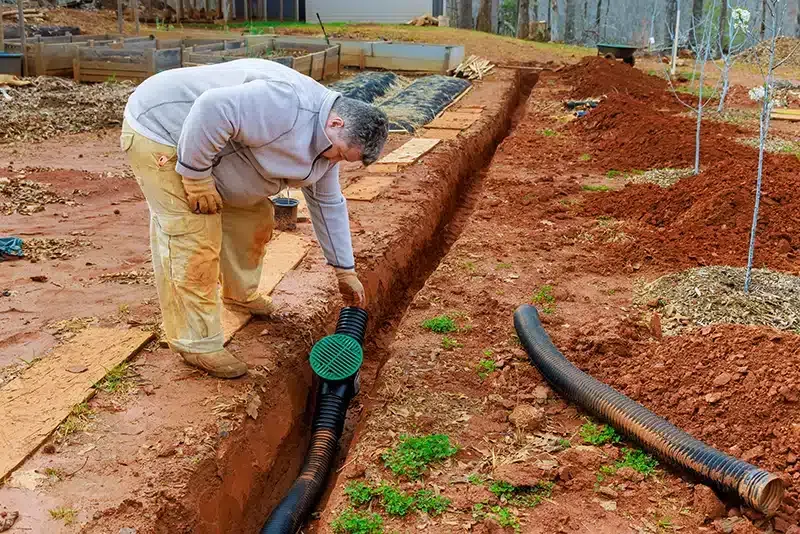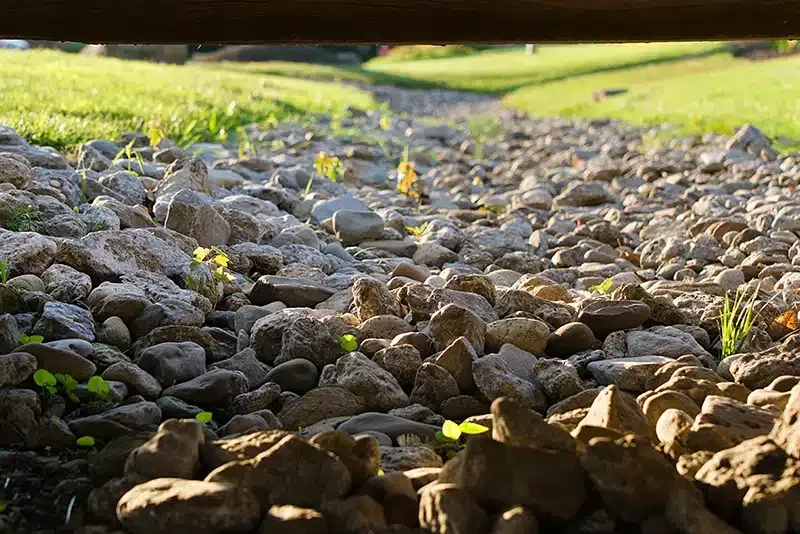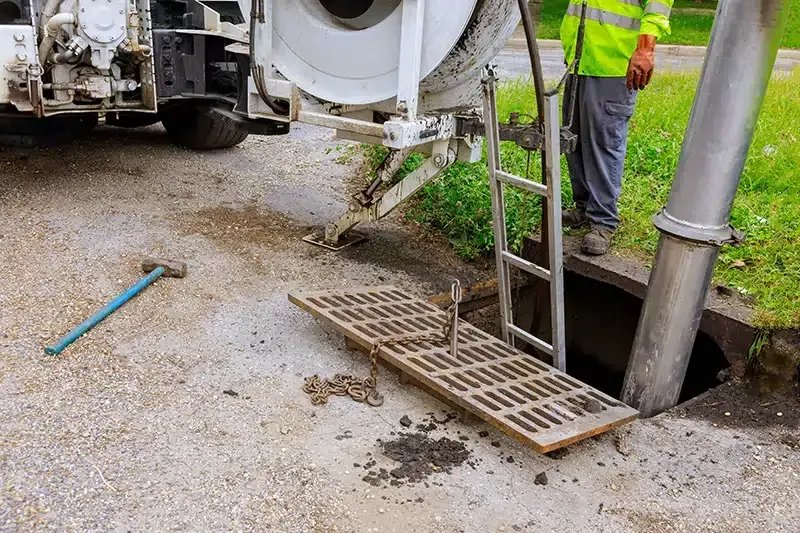When Should I Use a Pressure Washer on My French Drain?
When Should I Use a Pressure Washer on My French Drain?
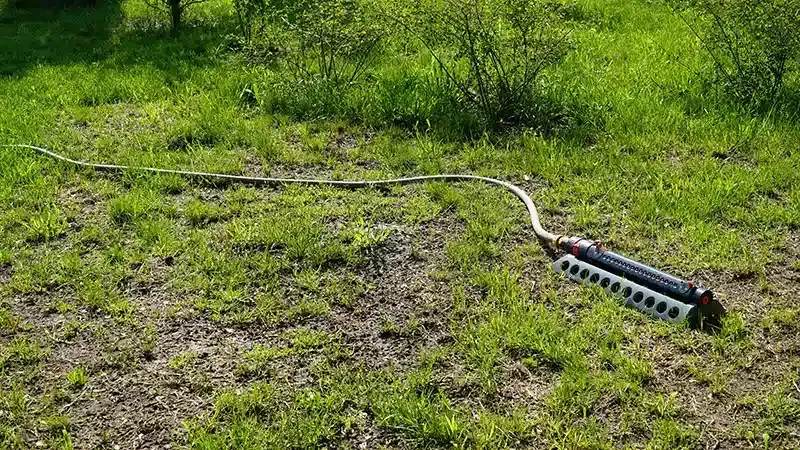
French drain installation is essential for preventing water damage by directing excess moisture away from your home’s foundation. However, over time, these systems can become clogged with dirt, debris, and organic matter, reducing their effectiveness.
If you're wondering whether a pressure washer is the right tool for cleaning your French drain, you're not alone. Using high-pressure water can be effective, but only when done correctly and at the right time.
This blog will help you understand when and how to safely use a pressure washer as part of your French drain cleaning routine to keep it functioning properly.
Identifying Signs of a Clogged French Drain
Before reaching for the pressure washer, it’s important to recognize the signs that your French drain may be blocked.
- Slow drainage near your foundation: If water is pooling around the base of your home after a rainstorm, your French drain might not be working as it should.
- Unusual wet spots in your yard: Soggy or mushy areas in the lawn can indicate that water isn't being redirected efficiently.
- Foul odors or mildew: Standing water due to a clogged drain can lead to mold growth and unpleasant smells.
- Visible debris at the drain exit: If you notice leaves, mud, or silt at the end of the pipe, there may be a blockage inside the system.
When It’s Safe to Use a Pressure Washer
Not every drainage issue calls for a pressure washer. Use it only under the right circumstances.
- After a professional drain inspection shows no structural damage, use a camera or visual inspection to make sure the pipe isn’t cracked or collapsed before applying high pressure.
- When there's partial blockage or buildup: If the drain is draining slowly rather than not at all, a pressure washer can clear silt and sludge without risking damage.
- If debris is loose and not compacted, Pressure washing is most effective when materials inside the pipe can be dislodged easily.
- As part of seasonal maintenance, Annual or bi-annual cleaning using a pressure washer can help prevent long-term buildup if your drain regularly collects debris.
Tips for Pressure Washing a French Drain
Proper technique is key to avoiding damaging the system or worsening the problem.
- Use a sewer jetting attachment: This specialized nozzle helps direct the water evenly and safely through the pipe.
- Start with lower pressure settings: Begin with a gentle stream and increase the pressure gradually if needed to avoid damaging the pipe lining.
- Work from the drain’s exit toward the house: This ensures debris is pushed outward rather than deeper into the system.
- Use clean water only—no chemicals: Avoid harsh cleaners or soaps that could harm soil quality or plant life near the drain.
Alternatives to Pressure Washing
Sometimes, using a pressure washer isn't the best option. Here are a few safer or more appropriate alternatives depending on the condition of your drain.
- Manual snaking: A drain snake can physically remove clogs without the risks associated with high-pressure water.
- Hydro jetting by professionals: For severe clogs, licensed plumbers can use commercial-grade hydro jetting equipment designed for underground drainage.
- Excavation and replacement: In extreme cases where damage is beyond cleaning, replacing the pipe may be necessary.
- Preventive maintenance like gravel flushing: Periodically rinsing the gravel and checking the fabric lining can reduce the chance of future clogs.
When to Call a Professional
If you're unsure or run into complications, it’s better to seek expert help than risk damaging your system.
- You’re unable to locate the blockage: Professionals use pipe inspection cameras to pinpoint the exact problem without guesswork.
- The drain hasn’t improved after cleaning. This may signal a deeper issue, like root intrusion or pipe collapse.
- You suspect damage from pressure washing: If your first attempt with a pressure washer led to new drainage problems, don’t try again without guidance.
Using a pressure washer on a French drain can be an effective way to remove clogs and restore proper function when done correctly and at the right time. It's important to assess the condition of your drain first, use the right tools, and consider professional help if needed.
With proper maintenance, your French drain can continue protecting your home from moisture damage for years to come.
